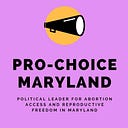Roe v. Wade’s 46 Anniversary and the continued fight for reproductive rights
By Norrell Edwards, Communications Intern
Yesterday, January 22, 2018 was quite a momentous day. American citizens have now endured one full month of the longest federal government shutdown in U.S. history. It was also the 46th anniversary of Roe v Wade, the Supreme Court case which legalized abortion across the United States. Yet, a near half century later, women’s reproductive rights are still threatened.
Congress
Although Majority Leader Mitch McConnell (R-KY) has now hindered two senate bills meant to end the shutdown from reaching the Senate floor for a vote, he did find time to schedule a preliminary vote for bringing the No Tax Payer Funding for Abortion and Abortion Insurance Full Disclosure Act 2019 to the floor. The bill, which did thankfully fail this past Thursday, January 17th, would have codified the Hyde Amendment and “established a permanent, government-wide ban on funds for abortions by standardizing the prohibitions that now exist in various federal programs.” These prohibitions restrict Medicaid dollars from covering abortion except in cases of rape, life endangerment, incest and other unique circumstances. In translation this policy predominantly impacts low-income communities and women of color. Since only 17 states provide Medicaid abortion care coverage, women who do not reside in those states are often forced to come out of pocket for abortion costs. These costs on average can range from $500 to as much as $1,500 or more, depending on the circumstance. Although this bill failed this round, it is likely to return again especially under the Republican led Senate.
Supreme Court
The confirmation of Supreme Court Justice Brett Kavanaugh has signaled a dramatic shift in the make up of the highest court in the land. Kavanaugh replaced Justice Anthony Kennedy, a swing justice who reportedly helped preserve Roe v Wade in cases that challenged the right to choose. (Planned Parenthood v. Casey and Whole Woman’s Health v Hellerstedt). Although Kavanaugh claimed in his hearing that he saw Roe as established precedent, in a leaked email document to the New York Times Kavanaugh argues that settled law can be overturned. So essentially precedent means nothing if enough justices want to over-turn it. Now with a conservative majority, should the four other Republican appointed justices vote decide to overturn Roe, it seems a likely possibility that Kavanaugh would follow suit. Even if Roe is not overturned there any number of abortion-related cases brought to this new court could result in further barriers to access.
States
Across the United States, the power and reach of Roe fluctuates from state to state. Just yesterday, New York’s Governor Andrew Cuomo signed the Reproductive Health Act, codifying Roe v. Wade into New York State law. Should Roe v Wade take a federal fall, women in New York are protected. Yet, in the case of Roe’s demise The Center for Reproductive Rights predicts that 22 states, nearly half the country, would subsequently ban abortion outright. Several states have introduced heart-beat bans in recent legislative sessions. Heartbeat bans outlaw abortions as soon as a heartbeat can be detected, which can happen as early as 6 weeks. In 2017–2018 these bans were introduced in 12 state legislatures and the U.S. Congress. Banning abortion as early as 6 weeks, drastically undercuts the amount of time a woman would have to choose. Typically abortions occur as early as 4–6 weeks through until 24 weeks. Although, as reported by Planned Parenthood, 12 weeks seems to be a cut-off date for many health care providers. Reproductive Rights advocates across the country are continuously fighting against dangerous bills that reduce reproductive rights for women.
On the anniversary of Roe v. Wade, we must remember that there is still much work to be done. The legacy of Roe is under attack across all segments of our government. The uncertainty of the future, should inspire us to further dig in our heels and advocate for reproductive justice. As Vox suggests, 2019 is a time for “opportunity, both to educate the public about abortion rights and to pass legislation that would protect — perhaps even expand — access for people around the country.”
Although Maryland’s abortion statute would stand if Roe was overturned, here at NARAL Pro-Choice MD, we are here to expand that access while supporting other reproductive freedom organizations and advocates around the country in the fight against legislation that curtail women’s right to choose. There is much work to be done, but we can do it together.
